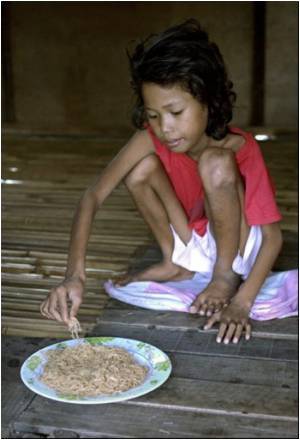Intake of bushmeat produced a positive outcome on children's nutrition, raising complex questions on the trade-offs between human health and environmental conservation, states a new report.

The findings are to be published the week of Nov. 21 in the journal Proceedings of the National Academy of Sciences.
"When thinking of creating protected areas for diversity, policymakers need to take into consideration how that will impact local people, both in livelihoods and from a health perspective," said study lead author Christopher Golden, who did the research while a graduate student in UC Berkeley's Department of Environmental Science, Policy and Management and at the School of Public Health. "We need to find ways to benefit the local population in our conservation policies, not hurt them."
Source-Eurekalert










